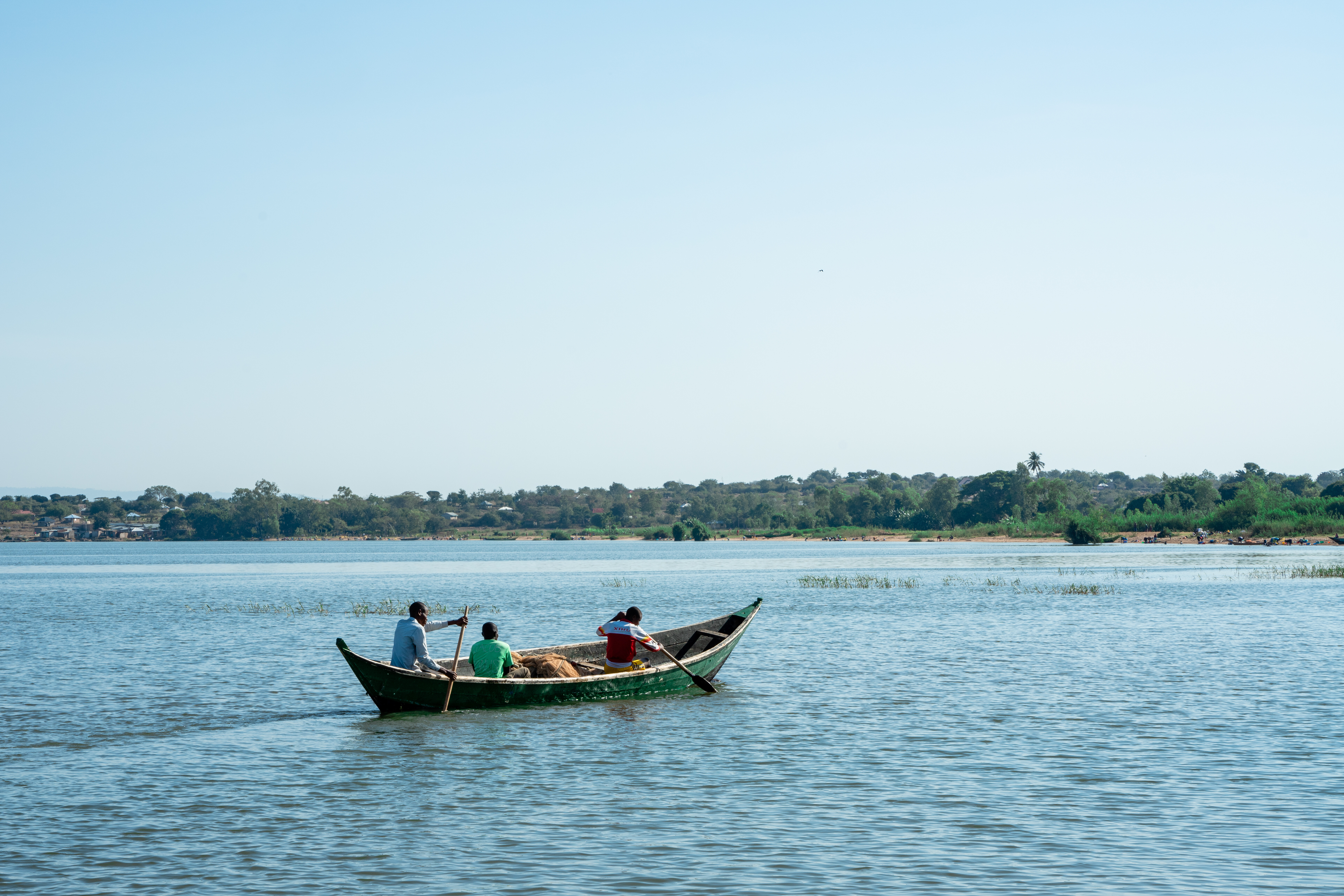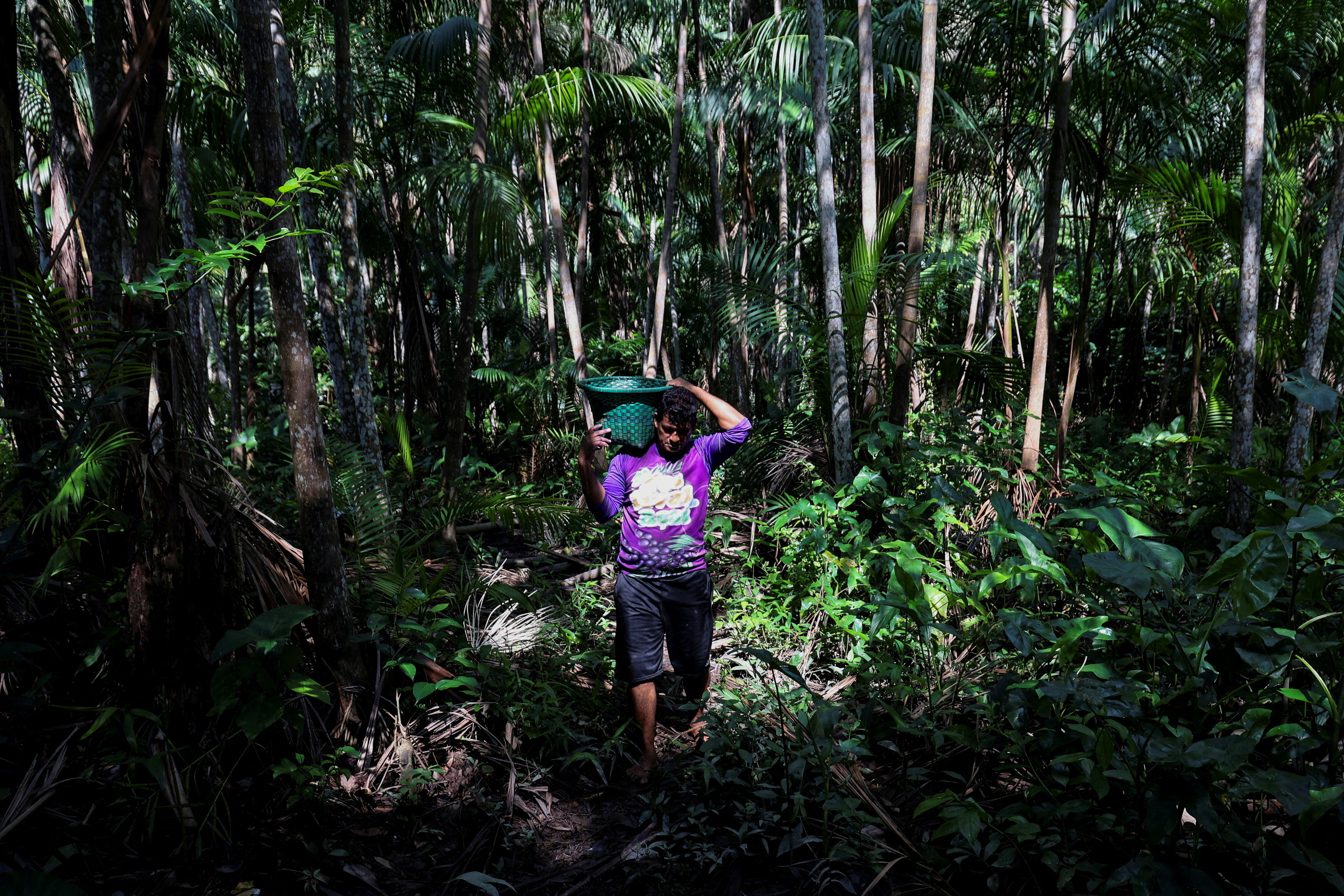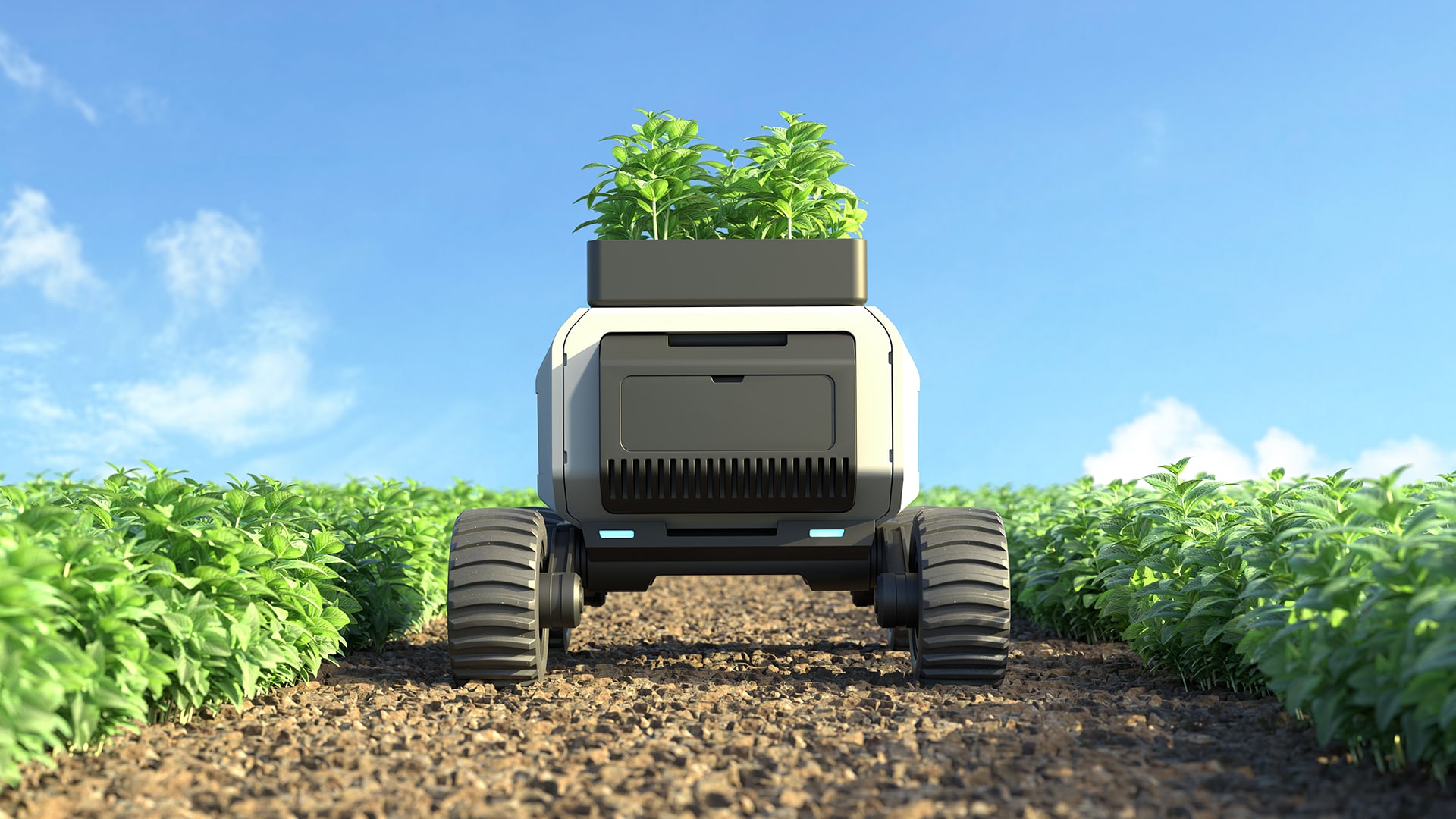It's the birthplace of wine, but climate change is making it tough to grow grapes in Georgia

Georgia is said by some to be the birthplace of wine. Image: REUTERS/David Mdzinarishvili
- Wine making is believed to have originated in modern day Georgia, 8,000 years ago.
- Wine and grapes account for nearly 9% of Georgia's exports.
- Extreme weather driving growing grape losses.
- Farmers are turning to planting hazelnuts and the government is using cloud seeding.
As worsening extreme weather ruins harvests, some winemakers are switching to growing nuts - and the government is firing anti-hail rockets.
The grapes in Solomon Nersezashvili's vineyard were almost ripe when a massive hailstorm hit in late August. In just 30 minutes, the ice wiped out most of the harvest - and months of hard work.
Such storms have long plagued Georgia's Kakheti region in the foothills of the Caucasus mountains, regarded by many as the birthplace of wine.
But their growing frequency and intensity - a problem linked to climate change - has triggered a debate over the future of grape-growing in Georgia, including among Nersezashvili's relatives.
The summer storm cost their family-run business $200,000 in lost revenue, according to the 52-year-old, who a decade ago decided to diversify into hazelnuts, which the farm sells to Nutella maker Ferrero.
"My brother says we should do away with the vineyard and just plant nuts," said Nersezashvili, as he contemplated a collapsed vine.
"We'll need a lot of money to fix the vineyard and get it ready for the next year, and in any case the harvest is not going to be as good because the plants have been damaged."
What is the World Economic Forum’s Sustainable Development Impact summit?
Wine and grapes account for nearly 9% of Georgia's exports, according to the national statistics office, and the country's vineyards are also a key tourist draw as its wine becomes more popular internationally.
But in recent years, about 100 Kakheti grape producers have partially or totally switched to nuts, a crop that is both hardier and more profitable, said Nika Beriashvili of Georgia's rural development agency (RDA).
Cloud seeding
To address the hail problem, Georgia's government has revived a Soviet-era system of cloud seeding, using rockets to carry silver iodide into the sky to stop ice from forming, ensuring it falls instead as rain.
Run by the Ministry of Defence, the system uses 80 launchers operated from the offices of a public defence contractor, STC Delta, which uses radar and weather forecasts to decide where to aim and when to shoot.
In the past year alone, the company said it has launched 4,700 rockets, each costing around 1,400 lari ($450).
The system has blind spots, particularly in late summer when grapes are ripe but hail clouds form at higher altitudes and rockets have to travel further, meaning they can cover less ground, said Delta's scientific consultant Khatuna Elbakidze.
Still, the company credits the system with avoiding about 90 million lari in agricultural damage over the past three years.
Some farmers are less enthusiastic.
"They shoot rockets and it still hails," said Isabal Sologashvili, a 79-year-old whose vineyard was also devastated in August.
After the August hailstorm, the government pledged to buy all damaged grapes, and pay 3,000 lari per hectare to farmers whose crop was wiped out.
The government already subsidises grape farmers by fixing the purchase price and covering the difference if the market price is lower. Any unsold grapes are bought up by a state-run wine company.
Subsidies have been credited with keeping tens of thousands of small farmers exposed to climate risks afloat.
But critics say this cash has been delivered for political rather than economic reasons, as it incentivises quantity over quality - and the costs are unsustainable in the long term as climate impacts worsen.

Patchy coverage
Nino Zambakhidze, head of the Georgian Farmers Association, said the money would be better spent helping farmers to invest in their business and prepare for climate change pressures.
Zero-interest loans to buy anti-hail nets or hot air cannons could be helpful, as could new weather stations, said winemaker John Wurdeman, who grumbles he has to check forecasts from a Norwegian provider as local ones are not as accurate.
Insurance is another problem. A government insurance scheme provides subsidised coverage for grape growers, but farmers complain the package covers only grapes, leaving out damage to vines and from hail or frost striking early.
The compensation follows the state system for subsidies, which broadly divides grapes into red and white, despite Georgia being home to more than 500 varieties.
"It's kind of ridiculous because there's no difference if it's organic, biodynamic or a very rare variety," said Wurdeman, an American who co-founded his Pheasant's Tears natural winery in 2007 and has never been insured.
Nino Dekanoidze, who heads the RDA's regional management service, said the government was aware that the agricultural insurance sector needed modernising and was working with international experts to do that.
What’s the World Economic Forum doing about climate change?

Resilient
Despite its many challenges, Georgia's wine industry has been growing in recent years, said Tata Jaiani of the Georgian Wine Association.
It has already proven resilient to shocks like a Russian embargo in 2008 that had winemakers scrambling to find alternative markets, she said.
"Wine for Georgia is not only a business, it's the culture and the identity of Georgian people and they will never stop doing it just because of the risks or the high costs," she added.
Nersezashvili, the farmer, said that despite pressure from his brother he could not bring himself to replace the vines that his father planted decades ago.
"We've invested too much money and work to just cut it all down," he said.
($1 = 3.1150 laris)
Don't miss any update on this topic
Create a free account and access your personalized content collection with our latest publications and analyses.
License and Republishing
World Economic Forum articles may be republished in accordance with the Creative Commons Attribution-NonCommercial-NoDerivatives 4.0 International Public License, and in accordance with our Terms of Use.
The views expressed in this article are those of the author alone and not the World Economic Forum.
Stay up to date:
Food Security
Forum Stories newsletter
Bringing you weekly curated insights and analysis on the global issues that matter.








